Directory
- Share
Alexandra Grigore
- Alumni
- Romania
- 2012 PhD Nanotechnology
- St Edmund's College
Alexandra Grigore
- Alumni
- Romania
- 2012 PhD Nanotechnology
- St Edmund's College
I was born in Constanta, a town near the Black Sea in Romania. I graduated simultaneously in Chemical Engineering and Business Administration in Bucharest and I am currently enrolled in the international MSc. of Advanced Materials and Processes in Erlangen, Germany. Besides my studies I conducted two research projects and two internships in fields ranging from nanotechnology, biomaterials, chemistry and biophysics. I am inclined towards applying my knowledge for practical purposes to create devices that will improve human life. This year I will start my Phd. in the Nano Science & Technology Doctoral Training Centre in Cambridge. I am very excited to apply my knowledge, exploit my curiosity and improve my skill skills in an interdisciplinary environment in the field of nanosciences. My dream is to lead my own research group, working in collaboration with companies and hospitals to develop lab-on-a-chip devices for low cost diagnosis and tissue engineering applications.
Dylan Griswold
- Alumni
- United States
- 2019 PhD Clinical Neurosciences
- St John's College
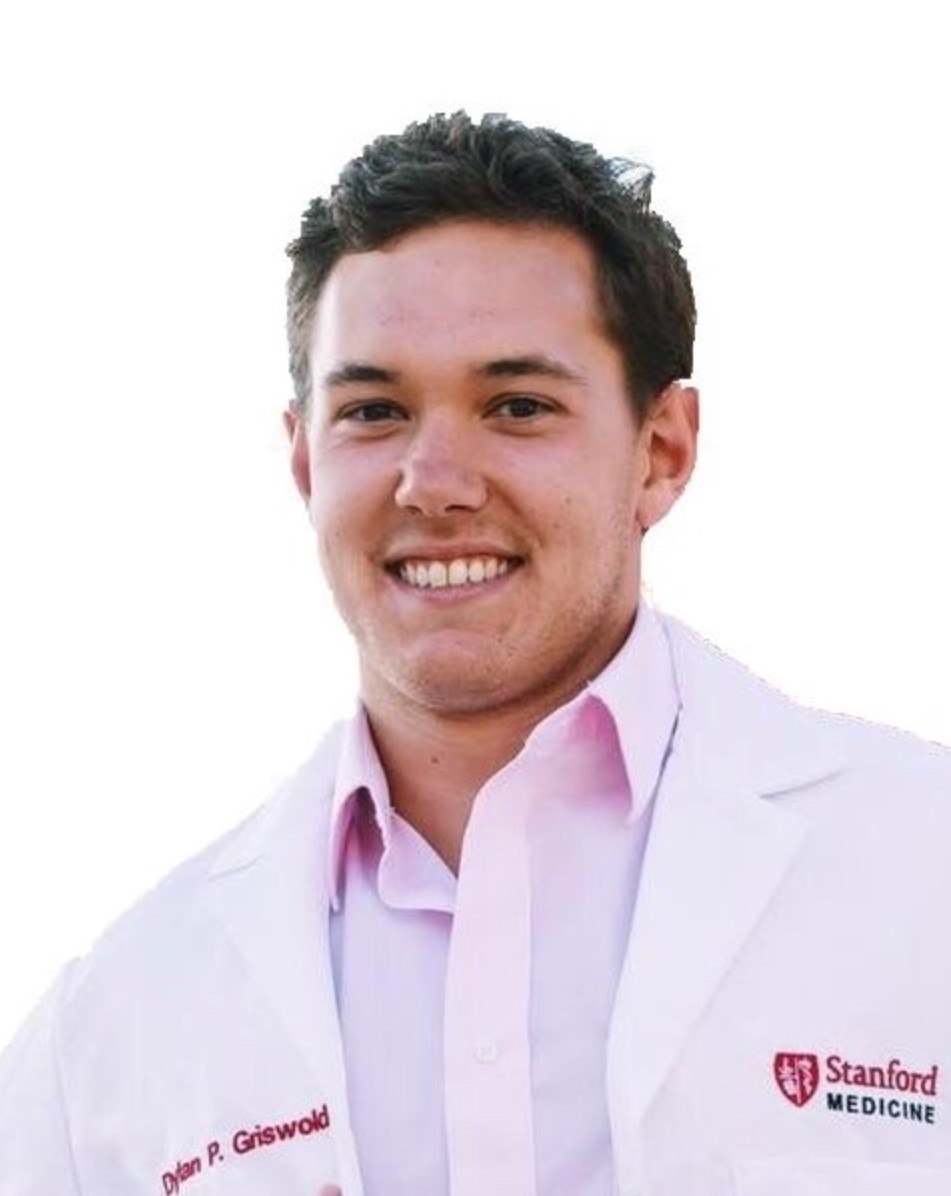
Dylan Griswold
- Alumni
- United States
- 2019 PhD Clinical Neurosciences
- St John's College
I’ve wanted to become a doctor since third grade. Although I was pre-med at Williams, I was also playing baseball, and my aspirations to continue playing after graduation began to take priority. I went to San Francisco the summer after my sophomore year in preparation for a professional tryout, but I tore a ligament in my elbow, requiring two surgeries. Unable to pitch, I began looking for volunteer work. A mentor pointed me to an AIDS hospice home operated by Mother Teresa’s order of nuns. There, I learned how to care for patients, my Catholic faith informing my love for the one who lay beside me. The following summer, I went to Haiti, where I was struck by the almost non-existent access to neurosurgical care. After spending the following year in the neurosurgery lab at UCSF, my desire to become a neurosurgeon was born. I matriculated to Stanford for medical school and developed an interest in connecting clinical practice with research and policy, leading to summer research at WHO in 2017. This past summer, at Cambridge, my team focused on surgical management of neurotrauma in low-resource settings. I am tremendously grateful for the opportunity to continue working with the global neurotrauma team at Cambridge to develop best-practice guidelines for neurotrauma in low-resource settings. As an MD, PhD candidate, I hope to become an academic leader capable of managing complex neurosurgical disease in addition to affecting policy to improve universal access to safe and affordable surgical care. Finally, I give thanks to God, abandoning myself to His plan for my life.
Previous Education
Stanford University Doctor of Medicine Neurosurgery 2021
Williams College B.A. Chemistry 2015
Benjamin Gross
- Alumni
- United States
- 2006 MPhil Criminology
- King's College

Benjamin Gross
- Alumni
- United States
- 2006 MPhil Criminology
- King's College
I'll be focusing on penal theory, paying particular attention to the moral status of revenge in justifications of punishment. I'm also interested in the mechanisms (often extra-legal) of punishment within prisons themselves. Also, I'm hoping to look into the scope of rational choice theory with respect to moral actors.
Simon Grote
- Alumni
- United States
- 2003 MPhil Political Thought
- Gonville and Caius College

Simon Grote
- Alumni
- United States
- 2003 MPhil Political Thought
- Gonville and Caius College
I'm pursuing a PhD degree in history, with an emphasis on European intellectual history of the seventeenth and eighteenth centuries. My research at Cambridge focuses on contemporary developments in moral philosophy, theology, and the reading of classical authors in mid-eighteenth-century Scotland, England, France and Germany, and involves an intensive study of the Scottish philosopher William Cleghorn.
Vanessa Grotti
- Alumni
- Italy
- 2002 PhD Social Anthropology
- Trinity College

Vanessa Grotti
- Alumni
- Italy
- 2002 PhD Social Anthropology
- Trinity College
Kevin Grove
- Alumni
- United States
- 2011 PhD Divinity
- Trinity College
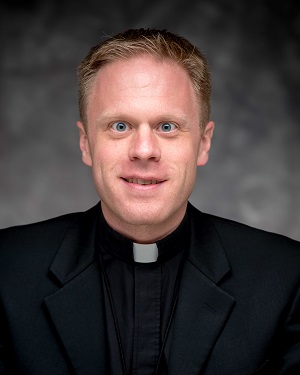
Kevin Grove
- Alumni
- United States
- 2011 PhD Divinity
- Trinity College
I am currently a research fellow at the Notre Dame Institute for Advanced Study, University of Notre Dame, USA.
Aaron Gruber
- Alumni
- United States
- 2003 MPhil BioScience Enterprise
- Trinity College

Aaron Gruber
- Alumni
- United States
- 2003 MPhil BioScience Enterprise
- Trinity College
Andrew Gruen
- Alumni
- United States
- 2008 MPhil Modern Society and Global Transformations
2009 PhD Social & Political Science - King's College
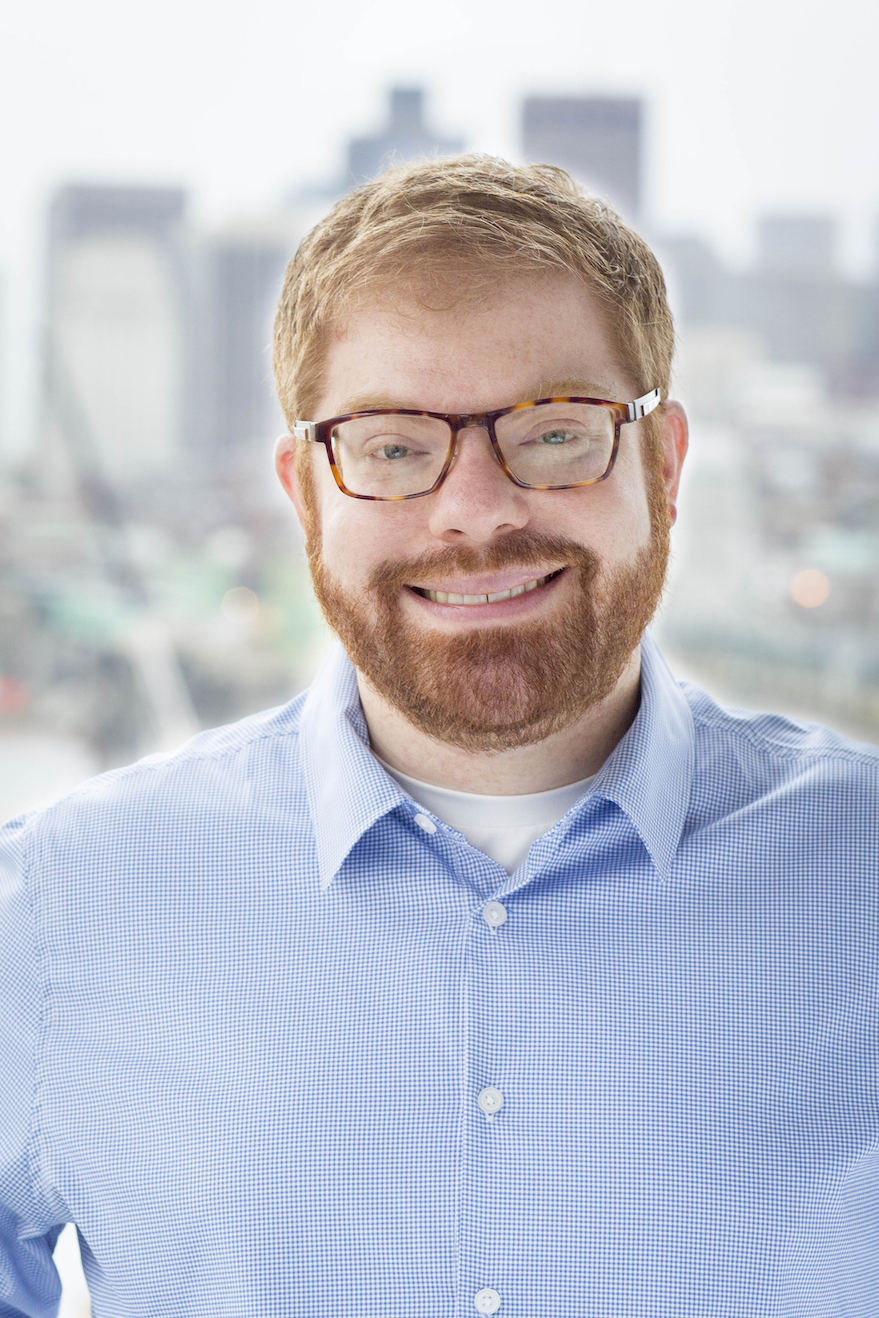
Andrew Gruen
- Alumni
- United States
- 2008 MPhil Modern Society and Global Transformations
2009 PhD Social & Political Science - King's College
Previous Education
University of Cambridge MPhil Modern Society & Global Transitions 2009
Northwestern University BSJ: Journalism, Political Science 2007
Anna Guasco
- Alumni
- United States
- 2019 PhD Geography
- Downing College
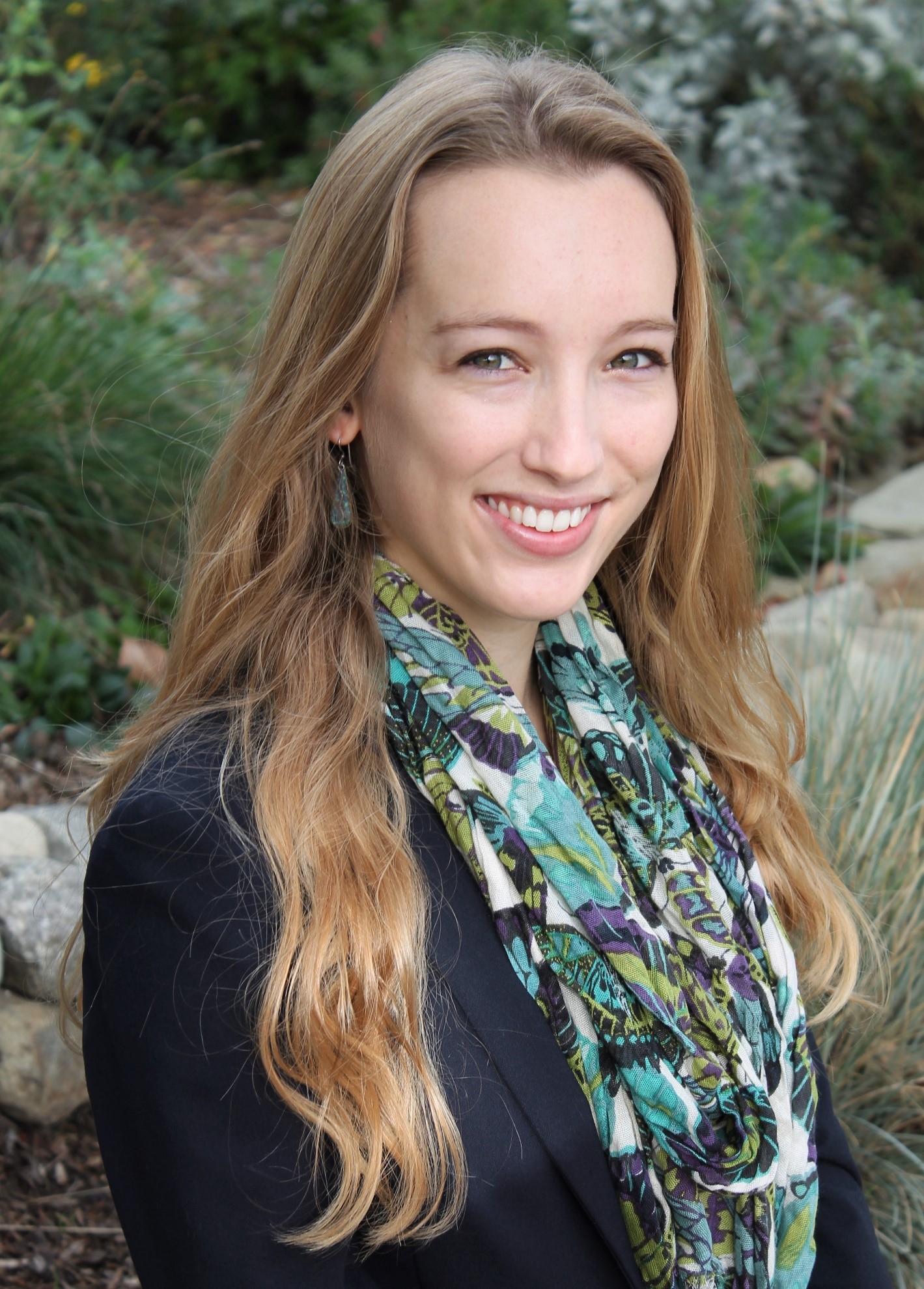
Anna Guasco
- Alumni
- United States
- 2019 PhD Geography
- Downing College
While studying at Carleton College in Minnesota and working as a park ranger at my local national park in coastal California, I found myself drawn to the unexpected connections between storytelling, history, environment, and justice. I centred my undergraduate and postgraduate research around these interdisciplinary interests, obtaining a B.A. in American Studies at Carleton and an M.Sc. in Environment, Culture and Society as an Avangrid Scholar at the University of Edinburgh. In my doctoral research in Geography at the University of Cambridge, I will study geographies, histories, and narratives of grey whale migration and conservation along the North American Pacific Coast. Through this work, I aim to examine how stories affect perceptions of historical encounters and outcomes of contemporary encounters, and to assess how storytelling interacts with issues of justice. In addition, I am passionate about public engagement, access, and accessibility. My interest in public engagement and access has been shaped by professional, academic, and service experiences, including volunteering as an environmental educator and education consultant, organizing Carleton’s first ‘BioBlitz’, serving as a resident assistant and public scholarship fellow at Carleton, supporting a local city council member’s environmental justice advocacy, and conducting independent research on environmental history, ethics, and aesthetics with Channel Islands National Park. As a Gates Cambridge Scholar, I hope to collaborate with other Scholars and Cambridge community members to promote equitable access to research, education, and storytelling.
Previous Education
University of Edinburgh Master of Science Environment, Culture & Society 2017
Carleton College Bachelor of Arts American Studies 2016
Loren Guay
- Alumni
- United States
- 2015 MPhil Classics
- Newnham College

Loren Guay
- Alumni
- United States
- 2015 MPhil Classics
- Newnham College
I received my BA from the University of Michigan in Classical literature with a minor in translation studies. During the MPhil in Classics at Cambridge, my dissertation explored the materiality of wounding and the resonant relationship between bodily violence and the environment in Homeric epic.After Cambridge, I received an MA in Classics from UCLA along with a graduate certificate in writing pedagogy. Most recently, I worked as a content specialist in the Office of Distance Learning at Northwestern University's School of Professional Studies, assessing online courses for digital accessibility, fair use & copyright, and writing. I am also a creative writer of poetry and speculative fiction, with work published in numerous venues. As of Fall 2024, I am a doctoral student in the Joint Program in English and Education at the University of Michigan, where I study rhetoric and composition, especially as related to labor and empire in the modern university.
Previous Education
University of Michigan
Vera Angela Gui
- Alumni
- Sweden
- 2017 PhD History and Philosophy of Science
- Corpus Christi College
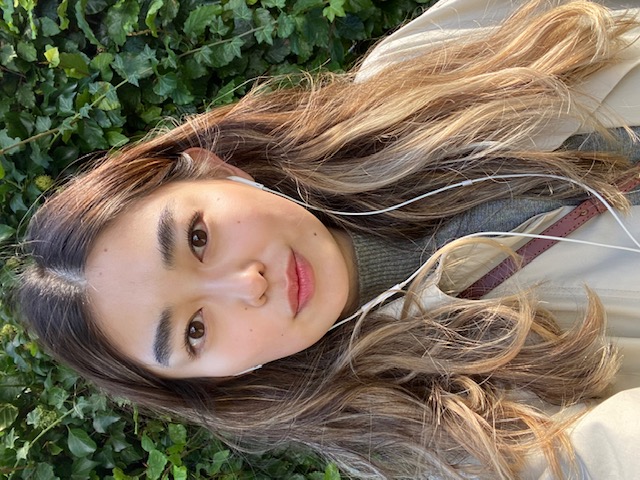
Vera Angela Gui
- Alumni
- Sweden
- 2017 PhD History and Philosophy of Science
- Corpus Christi College
My research focuses on lung disease epidemics in twentieth century China, with a particular interest in visual communications of public health messages. My project, which is funded by the Gates Cambridge Trust, explores the ways in which lung disease shaped the everyday, touching upon notions of body, modernity, and nationhood across the 1949 divide through visual and print cultures of lung disease public health campaigns.
I was previously at the Centre for the History of Medicine at the University of Warwick, working on public health and neuroscience under social democracy in the mid-twentieth century with the support of a Wellcome Trust Medical Humanities MA Award. I also taught on the undergraduate module 'Social Theory of Law' at the Warwick Sociology department in 2017.
At Cambridge, I have supervised undergraduates on 'Science in the Making of Modern Medicine' and 'Science and Medicine since World War I'. Beside my academic work I run a human rights campaign focusing on political prisoners in China. As part of this work I have testified before US Congress, UK and Canadian Parliaments, and the United Nations Human Rights Council. I have contributed articles and commentary for outlets such as The Washington Post, The Guardian, Hong Kong Free Press and a number of Swedish publications. As of 2022, I also serve on the board of The Campaign for Hong Kong.
Previous Education
The University of Warwick
Douglas Guilfoyle
- Alumni
- Australia
- 2004 PhD Legal Studies
- Trinity Hall

Douglas Guilfoyle
- Alumni
- Australia
- 2004 PhD Legal Studies
- Trinity Hall
I worked as a commercial lawyer in Sydney and as an associate (or clerk) to two Australian federal judges (one in Sydney, one in Melbourne) before coming to Cambridge. My PhD research at Cambridge was on the interception (stopping, searching and seizing) of shipping in order to regulate such activities as drug smuggling, WMD trafficking and the management of fisheries. Since leaving Cambridge I have work as a Lecturer and Reader in Law at University College London. From April 2015 I will be an Associate Professor at the Faculty of Law, Monash University, Melbourne.
Zachary Guiliano
- Alumni
- United States
- 2012 PhD History
- St John's College
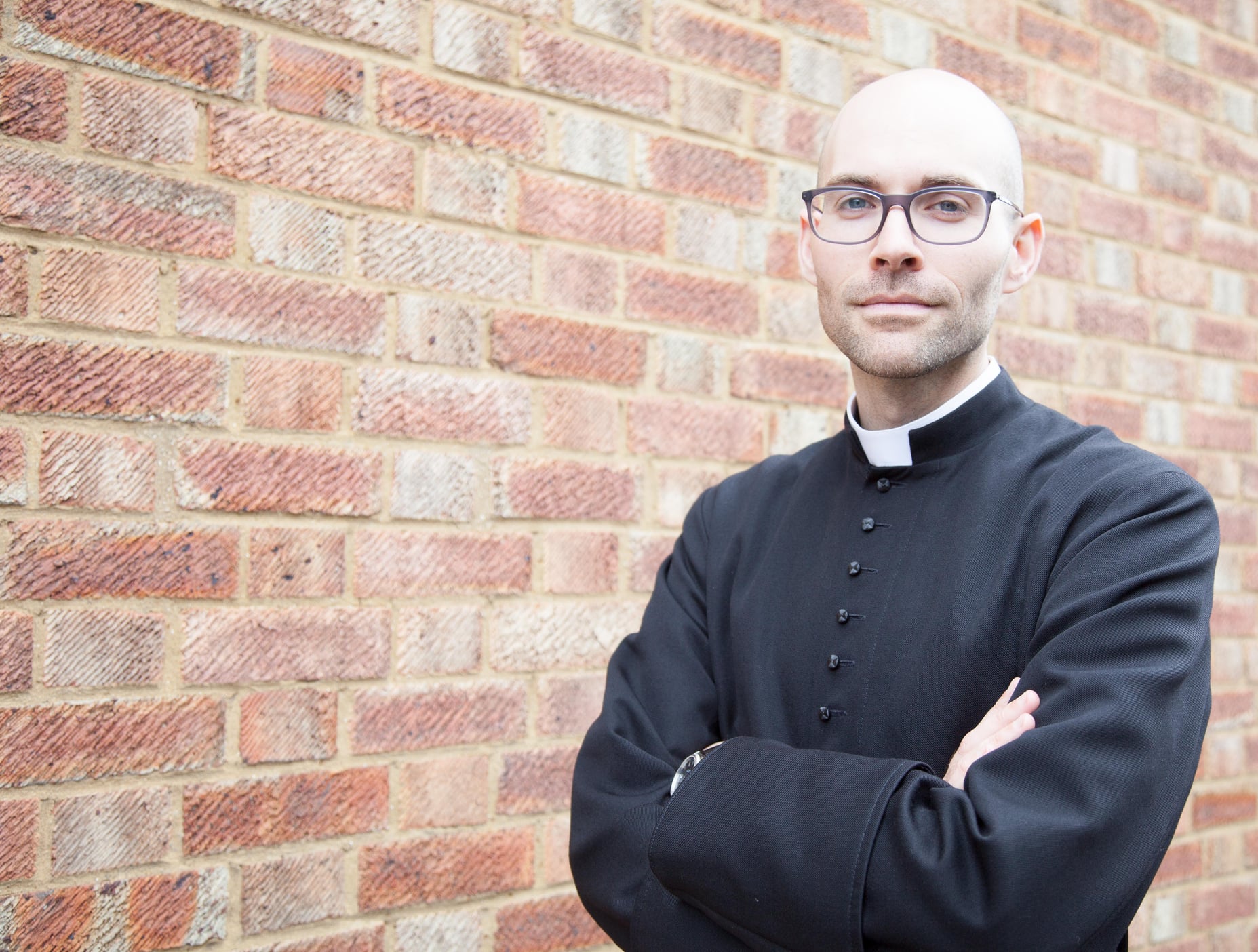
Zachary Guiliano
- Alumni
- United States
- 2012 PhD History
- St John's College
Zack is Priest Vicar at Christ Church, Oxford. At the University, he is a tutorial affiliate of the Faculty of History and associate member of the Faculty of Theology & Religious Studies.
In 2023, he won the Ecclesiastical History Society's book prize for a first monograph, on research stemming from his Gates Cambridge funded PhD. He was recently appointed to the Academic Board of the Archbishop of Canterbury's Lambeth Research Degrees.
Zack works primarily on collections of sermons and biblical commentaries from Late Antiquity and the Middle Ages, in particular their place within the intellectual, spiritual, and economic cultures of the eighth through tenth centuries. His historical research has focused strongly on the central place of religious practice in the cultures of the Latin West, and the reception history of biblical texts.
His first monograph, The Homiliary of Paul the Deacon, considered a unique collection of sermons commissioned by Charlemagne, along with 88 of its earliest extant manuscripts, used in cathedrals and monasteries across the Carolingian Empire. The homiliary was a striking example of royal piety and the patronage of scholarship in the eighth and ninth centuries, with a considerable impact on later religious practice and theological writing.
His present research project concerns power and poverty in the Middle Ages, considering how the Gospel of Luke and the thought of its most important medieval interpreter, Bede, affected practices of charity, work, and ownership. He is at work on a book tentatively titled, Bede’s economy: The commentary ‘On Luke’ and its readers in early medieval West.
Links
https://www.seh.ox.ac.uk/people/zachary-guiliano
http://hcl.harvard.edu/libraries/houghton/collections/early_manuscripts/preaching/index.cfm
Pierre Guillot
- Alumni
- France
- 2001 PhD Mathematics
- St Edmund's College

Pierre Guillot
- Alumni
- France
- 2001 PhD Mathematics
- St Edmund's College
Joanna Guldi
- Alumni
- United States
- 2001 MLitt Geography
- Trinity College

Joanna Guldi
- Alumni
- United States
- 2001 MLitt Geography
- Trinity College
Nilima Gulrajani
- Alumni
- Canada
- 2001 PhD Management Studies
- Trinity College

Nilima Gulrajani
- Alumni
- Canada
- 2001 PhD Management Studies
- Trinity College
Alina Guna
- Alumni
- Canada
- 2014 PhD Bio Sci @MRC Lab for Molecular Biology
- St John's College
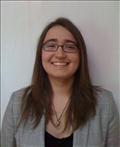
Alina Guna
- Alumni
- Canada
- 2014 PhD Bio Sci @MRC Lab for Molecular Biology
- St John's College
I completed my B.S. in Neuroscience and Cell and Molecular Biology at the University of Toronto. During my studies, I got the opportunity to work in a variety of labs. I have previously built MRI coils to image the breaking of the blood brain barrier, worked to find conserved molecular markers that trigger the plant innate immune system, investigated how the brain perceives visual interference, and examined the genetic underpinnings of Parkinson’s disease. Eventually, I became fascinated by the effects of ageing on the brain at the protein level. At Cambridge, I will be examining the underlying mechanisms that cause protein aggregation in neurodegenerative diseases. Specifically, I will be studying the coupling of biosynthetic and degradation pathways of secretory and membrane proteins. I hope that my work will not only inform clinical practice and aid in the development of novel therapeutic approaches, but also lead to a better understanding of a fundamental molecular pathway.
Katie Gunderson
- Alumni
- United States
- 2008 PhD Earth Sciences
- Jesus College

Katie Gunderson
- Alumni
- United States
- 2008 PhD Earth Sciences
- Jesus College
I completed my PhD in Earth Sciences in December 2012 on 'Radiation Damage in Phosphates and Silicates for Nuclear Waste Disposal.' Currently, I am a Research Associate at the Bureau of Economic Geology, University of Texas at Austin, as part of a team of geologists, engineers, and economists working to quantify U.S. shale gas resources.








